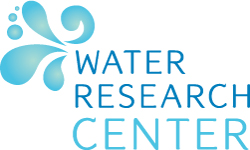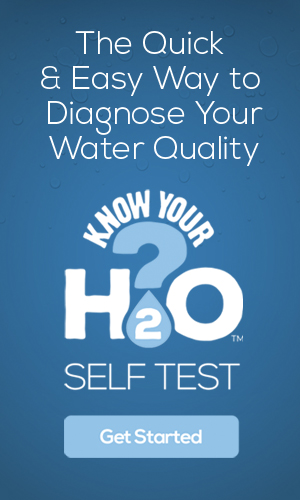Report # 2- Nitrates and Drinking Water
The Water Research Center is a strong supporter of environmental education and the company feels privileged to make available this informational fact sheet for free as a means of environmental education, awareness, and outreach. In partial fulfillment of that obligation we are proud to make this report available to YOU. There are a number of contaminants that threaten the safety and quality of our nations drinking water, but none seem so benign as nitrates. Nitrates are a form of nitrogen. Nitrogen is need by every living plant and animal and can be found in the soil, air we breath, rain and the water we drink. Nitrogen is usually present in the form of ammonia (NH3),nitrite (NO2), and nitrate (NO3), so how could this essential element be a concern.
The Concern
If infants drinking baby formula or water that contains an elevated level of nitrate or nitrite the baby could die from the disease "methemoglobinema". Current research suggests that long-term exposure to nitrates in drinking water may cause the development of cancer. I hope that these potential concerns make your read on and learn more about nitrates. What is "Methemoglobinema" anyway?
"When an infant consumes formula made with nitrate or nitrite contaminated water, the nitrates are converted in the child’s stomach to nitrite. The nitrite is then absorbed into the body and reacts with the blood (hemoglobin) to form methemoglobin. Since hemoglobin carries the oxygen throughout the body and methemoglobin can not carry oxygen, the infant can suffocate due to lack of oxygen". This is why this is sometimes known as "Blue Baby Syndrome"
Cancer Concern:
The concern over the ability of nitrates to cause cancer is unclear. Once in the body the nitrate or nitrite can form a serious of nitrogen compounds that have been tested and shown to be cancer causing agents in laboratory animals. Currently, there is no direct evidence that nitrate-contaminated drinking water causes cancer, but it is recommended that you reduce your exposure to these compounds.
The Source:
A recent study conduct by the EPA estimated that over 600,000 household had nitrate levels above the safe drinking water standard of 10 milligram NO3-N per liter (nitrate as nitrogen) and a study by the US Geological Survey showed that at least 6 % of the nations rural wells exceeded the drinking water standard. The primary sources of nitrogen include:
Farming/Landscaping: excessive or improper fertilizer use and improper storage of manure
Land Development: inadequate stormwater management and erosion protection
On-lot Septic Systems: improper siting, design, and maintenance
Landscaping fertilizers for lawn maintenance
Airborne sources of NOx
Nitrate contamination is typically a problem in agricultural areas, but other rural non-agricultural communities are also at risk. It is important to KNOW the Hazards in your Community - Get your Hazard Report.
Nitrate Removal:
The only ways to prevent nitrate contamination of a water supply include: proper siting of water system, proper management of fertilizers and manure, proper well construction (sanitary wells), and install point-of-use water treatment devices. The primary water treatment devices for nitrate removal include: ion exchange resins, distillation, and reverse osmosis. It is critical that you have your water tested for this contaminant (laboratory testing) or in-home screening test for nitrate-nitrogen and more..
References or other resources
Other Reports are available for FREE.
Free Report # 1- Giardia in Drinking Water
Free Report # 3- Lead in Drinking Water
Homeowners Guide to Drinking Water Test and Testing- What do I test for?
Newest Website - The MTBE Fact Sheet
Newest Website - Arsenic In Groundwater
Newest Website - Trihalomethanes
Nitrate Treatment Systems (Whole House)
Up to 1,000,000 gallons
Online Training Courses
LEED- AP / Green Associate Training/ Professional Development Hours Courses
Training Pros - Continuing Educational Portal
Professional Development Hours - Engineers (PDH)
Career Training for Industry






